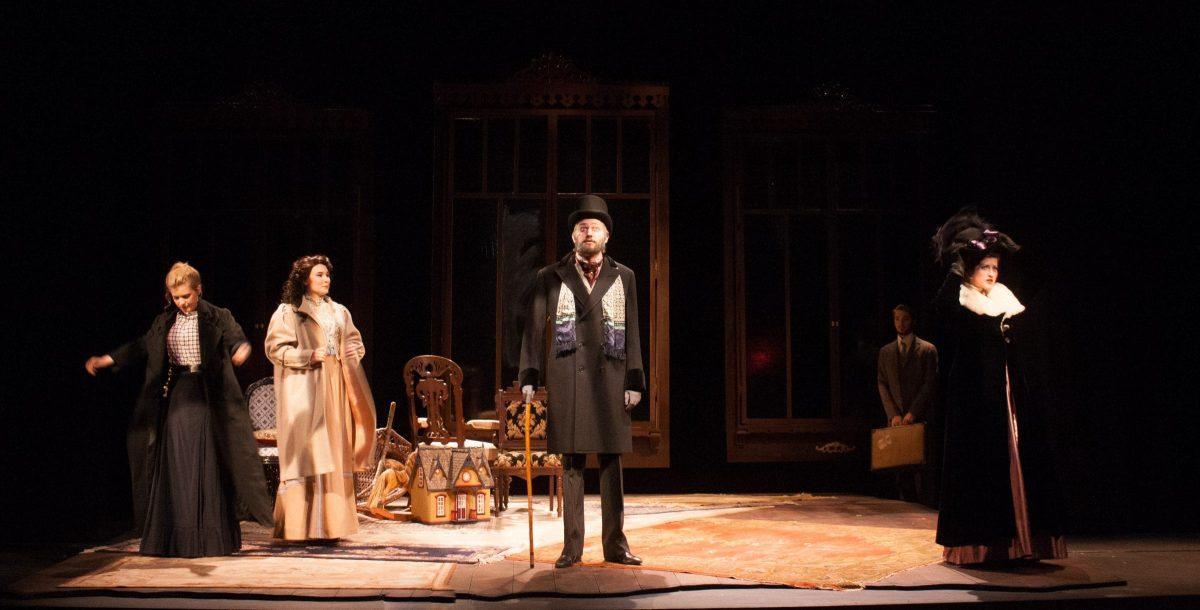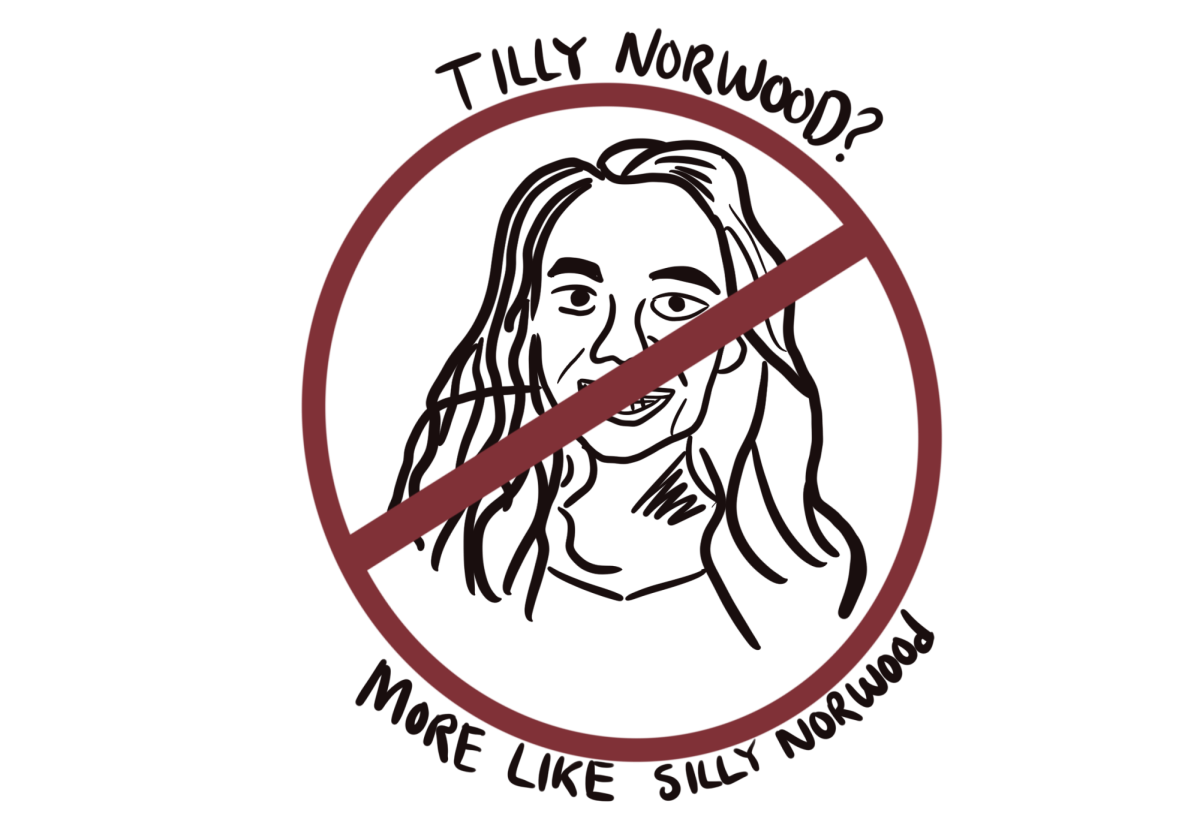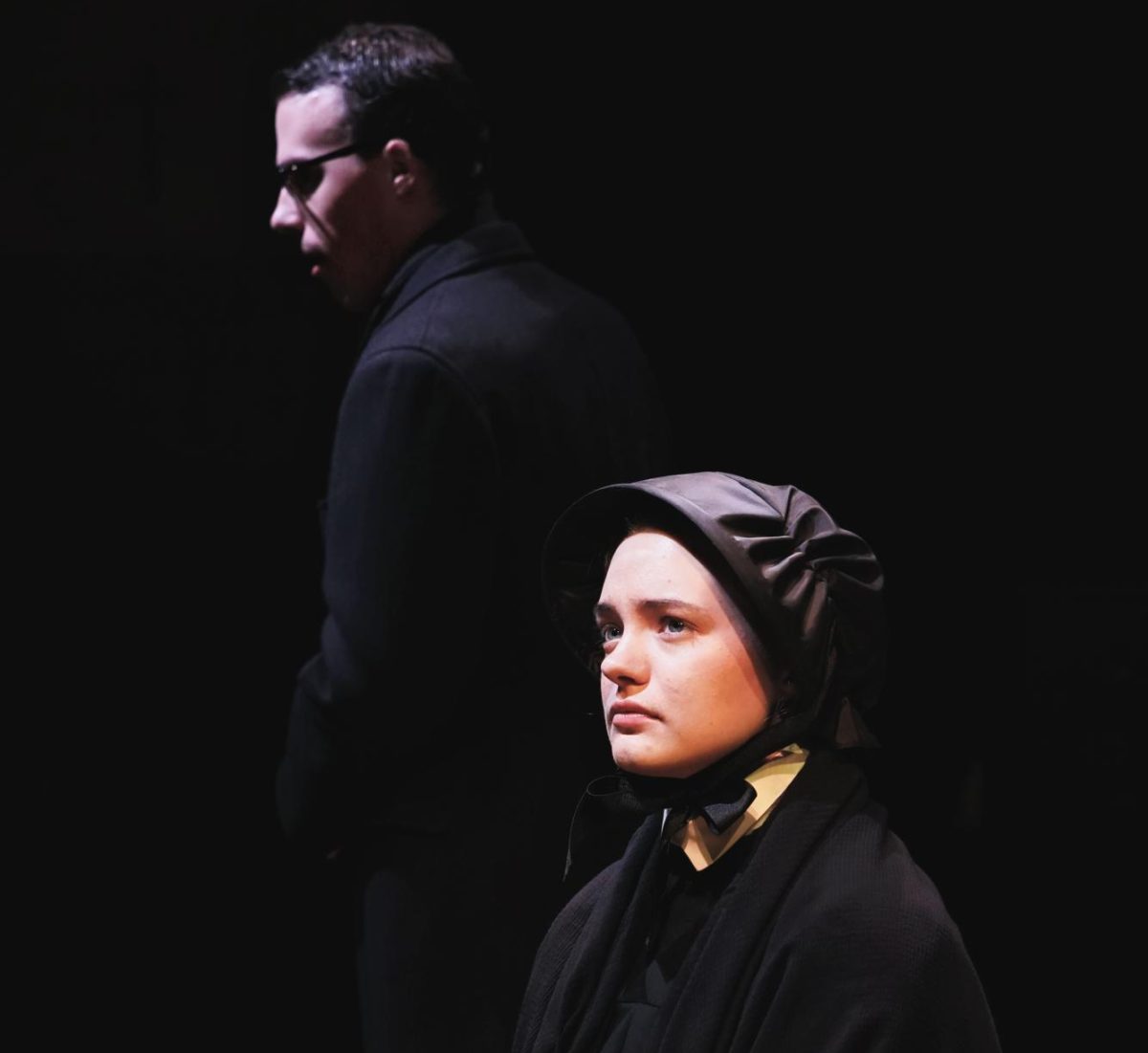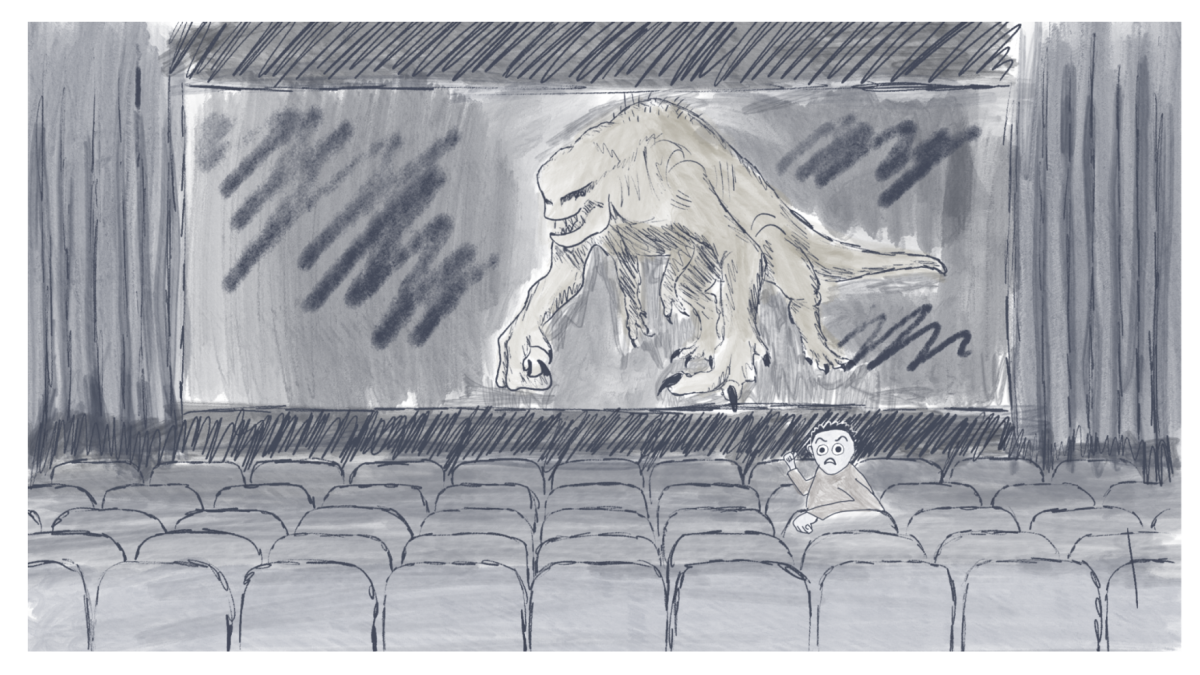“Life has gone by as if I never lived.”
This is one of the final lines of The Cherry Orchard by Anton Chekhov, the most recent production in the Theater Department’s 2015-2016 season which premiered on the ominous date of Friday, Nov. 13. Directed by Gary Gisselman and staged in Kelsey Theater, the seven show run began with three performances last weekend and will continue with another four starting on Nov. 19.
The Cherry Orchard, Chekhov’s final play, tells the story of an aristocratic Russian family at the turn of the 20th century, after the abolishment of serfdom. The family’s wealth has dwindled to the point where their opulent estate and the titular cherry orchard that surrounds it are to be put up for auction to pay off their debts. Much to the frustration of those around them – particularly a former serf turned enterprising businessman – they take no real action to save their home, instead choosing to wallow in their old ways, waiting for some miracle cure.
In writing the play, Chekhov intended the show as a farcical comedy. However Constantin Stanislavsky, who directed the very first run of The Cherry Orchard in 1904, considered it a tragedy. Since then, scholars of Chekhov’s work have spent countless hours debating the show’s proper genre classification. St. Olaf’s production falls somewhere in the middle, finding a happy medium between the humor of a cast of eccentric characters bouncing off one another and the tragedy of a family on the road to ruin.
Tara Schaefle ’16 stars as Liubov Ranyevskaya, the family’s matriarch and owner of the cherry orchard. While sometimes humorous in her misunderstandings of and disregard for financial matters, Schaefle’s Liubov is the linchpin of the show. She epitomizes the tragic aspect with her despair over the loss of the cherry orchard, which is her last connection to everything she has lost: her husband’s affections, her son’s life and her entire way of life.
Liubov’s tragic nature is contrasted by her brother, Leonid Gayev, played by Will Ibele ’18. Gayev is the source of the show’s comedic peaks, especially in a scene where he converses with a bookcase and his many quabbles with Firs, the family’s butler played by former St. Olaf pastor, Bruce Benson. Gayev is much more attentive than his sister to the estate’s dire situation, but ultimately fails due to his lack of drive and habit of fantasizing about billiards when faced with adversity.
If Liubov and Gayev represent the show’s tragic and comedic aspects respectively, it can be said that Firs the butler is a consolidation of the two. This is epitomized in the play’s final scene, where Firs wakes to find that the family he served all his life has forgotten him as they abandoned the house in the wake of its deconstruction. Each of Benson’s lines alternated emphasis between the Home Alone-esque hilarity of that situation and its depressing loneliness. During that scene, the audience restricted themselves to loud snuffs and quiet gasps, refusing to ruin the silence of the borderline magical moment.
Most of the characters in The Cherry Orchard are either Liubov’s family or servants. Two figures that fall outside of this categorization are Yermolai Lopakhin, played by Memo Rodriguez ’16, and Petya Trofimov, played by Dylan Stratton ’16. Both are young men who have a history with the Gayev’s estate; Lopakhin’s family was once their serfs and Petya was a tutor to Liubov’s late son. Since then, the two have embraced two radically different ideologies. After serfdom was abolished, Lopakhin worked his way to become a wealthy, enterprising landowner, whereas Petya continued his education and became a radical left-wing political idealist.
The Cherry Orchard is a story of several antithetical characters, all of whom are portrayed neither favorably nor dispassionately. Petya and Lopakhin embody this idea. Both characters are relatively unscathed at the play’s end; Lopakhin has achieved financial victory and Petya embraces the fall of the aristocracy. Despite having opposite views, the two respect each other and Chekhov does not give either an ethical advantage.
Either Petya or Lopakhin could be interpreted as The Cherry Orchard’s hero, but Chekhov leaves it to the audience to ponder their personal morals to decide. But Chekhov also does not make either of them invincible. Despite thinking that his education and connection to the ‘common people’ puts him above the Gayevs, Petya is reduced to childish yips when Liubov lays into him for the airs he puts on. And when Lopakhin reveals that he has bought and is going to destroy the cherry orchard where his ancestors toiled as serfs, his joy is spoiled when he realizes that he never actually desired victory, but rather for others to bear witness to that victory, something which no one is particularly interested in doing.
The show’s sound design was one of its most impressive technical feats. Particularly impressive is the song and dance that reopens the play after its intermission. The lively Russian tune sets the tone for the following scenes and enlivens a potentially dull script. But by far the most impactful sound was the famous cue listed in the text as “the sound of a string snapping” that occurs in the middle of the show and again at the end. The ominous noise was created by dragging the bow of a violin across the edge of a drum cymbal, and it unnerves both characters and audience alike in the plays most critical moments.
The set, too, was impressive, as imposing set pieces were either rolled in and out, or dropped and lifted from above with seemingly little effort. Casting realism aside, these structures fit the show’s surreal tone and added an element of spectacle to the production.
One weak point of the design was the show’s use of projections. While the images themselves were well-made, many clashed with the design of the set. Additionally, the choice to project these images onto black scrim fabric made the originally vibrant images appear dull and even ugly.
The designers opted to project a forest made up of birch trees rather than cherry trees. Maybe the production crew came up with a reason for this in their production meetings, but the audience never learns why. The lack of cherry trees comes across as a glaring design oversight.
In one performance, the projections malfunctioned early on and went out for the duration of the first act. The scene seemed to work better without them.
Though the projections are generally counterproductive during the show, they nearly redeem themselves in the first and last moments of the play’s final scene. Before Firs enters, the empty stage captivates with just the remnants of the Gayev’s estate and the forest glowing behind it. Then again, as Firs dies at the end of his monologue, that mesmerizing effect returns as his corpse blends into the wreckage of the crumbling aristocracy that he served all his life.
Despite technical issues, The Cherry Orchard succeeds as a lively revival of Chekhov’s last play with great performances by the cast and an energetic translation of the hundred year-old script.
The Cherry Orchard continues its run with 7:30 p.m. shows on Nov. 19-21 and a 2:00 p.m. matinee on Nov. 21.






